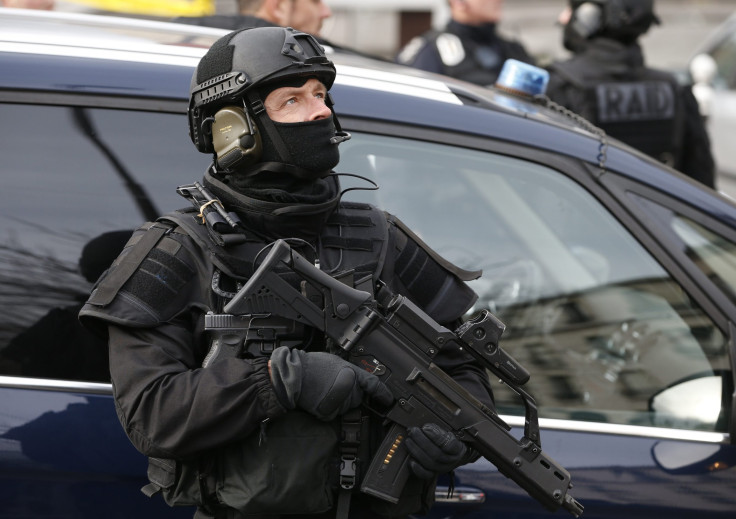After Charlie Hebdo Attack, Parisians Fear Immigration Crackdown, Racist Policies

PARIS -- As France rallies in favor of tolerance and freedom of expression after the terrorist attacks of last week, some French fear that the backlash will damage precisely those values, in the country with the biggest Muslim population in Europe. After radical Islamist terrorists attacked a Paris magazine office last Wednesday and a Jewish market on Friday, millions of French people came together Sunday for the biggest rally in the country’s history. But many were concerned that the solidarity would prove to be tenuous, as anti-Muslim discourse, long present, makes even deeper inroads into the country’s politics.
“Some people are going to use this to pass on a message that’s pretty much racist,” said Ariane Lebot, a 26-year-old Ph.D. student. “There are roughly 8 percent Muslims in France, and there are people who are getting attacked in mosques,” she said, referring to a spate of anti-Muslim violence that followed the Charlie Hebdo and HyperCacher terrorist attacks. There have been at least 50 anti-Islamic attacks this week, according to the Conseil Francais Du Culte Musulmans.
One such politician who has already renewed her call to curb immigration in the wake of the attack is right-wing Front National leader Marine Le Pen. Le Pen’s popularity has been on the rise in France for the last year, after her party came in first at the European Parliament election last spring. She is now twice as popular as the president, and asked, in the immediate aftermath of the attacks, that France reinstate the death penalty.
“I think there there are risks, unfortunately,” said Arthur Boiten, a 22-year-old university student. “People will be scared and through the confusion of [terrorists and Muslims] will think that a certain type of person shouldn’t be allowed in. I hope [policy] doesn't change but I’m afraid it will.”
Le Pen, whose party got one French vote in four in last year’s European election, was not invited to join the many world and French leaders at Sunday’s march, but that did not stop her from using it for political gain, some said. And after Wednesday’s attack, even some who do not endorse Le Pen’s anti-Muslim stance agreed that the way France deals with religion in the public space -- essentially ignoring that it exists -- is a problem.
“The solution is that the young people who dive into religion in a radical fashion, or who participated in an indoctrination either in France or somewhere else, we need to take care of that before they get lost in it. It’s about education,” said Marie Eden, a psychologist who lives in a Paris suburb.
The migration into France of people who may not be amenable to what are known here as “Republican values” -- the classic triplet of “liberté, egalité, fraternité” as well as freedom of expression -- was another issue mentioned by people attending the march. Le Pen’s message that some people should not be in France taps into that sentiment.
“Immigration is a huge problem. I work in difficult neighborhoods, and it’s true, we are helping a massive arrival from people who are not interested in integration with Republican and French values. They want to stay within themselves and refuse when we go near them,” Eden said.
This is not the case with everyone, however. One family attending Sunday's march immigrated to Paris from Egypt nearly 25 years ago. Holding up a sign that said “Egypt Against Terrorism,” they said that in France, they are able to live their lives as they wish without fear of harassment.
Some feared, more than immigration, the return of French nationals who had been to fight in Iraq and Syria with the Islamic State group.
“The three attackers were French. They were born in France. What’s more, they were born in Paris with everything Paris has to offer in terms of culture and access to information,” said Thomas Bouzanquet, a 24-year-old painter, “and they ended up in that.”
Still, he didn’t advocate for wholesale expulsion or repression of those who return from waging jihad on Middle Eastern battlefields. “You need to understand why" they left, he said.
The demonstrations that millions of their fellow French were attending, filling the streets of Paris from L’Arc de Triomphe to Place de la Nation, were something never before seen in France. Demonstrations are not uncommon in Paris, but they are rarely so peaceful or so united behind a shared idea. And never so large.
It was that solidarity that Bouzanquet and his friend Arthur Rambaud, a 22-year old student sitting with him at a cafe on Place de La République, were most proud of -- and most afraid to lose.
For the first time on Sunday, they said, they appreciated that freedom is something you have to work for every day.
“To liberty,” they said as they clicked wine glasses.
© Copyright IBTimes 2025. All rights reserved.






















